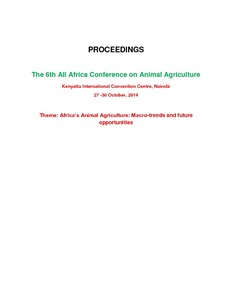Resource information
Smallholder dairy farming is seen as a viable and promising activity to support the livelihoods of cattle keepers in low-income countries. This farming system, characterized by small herds of improved cattle raised under zero-grazing, is proven to lead to better milk yields, but also to require more constant and demanding inputs and resources to sustain production. Moreover, endemic diseases and the poor knowledge on disease control by farmers, along with the limited availability of veterinary services, presents challenges for effective farming. We conducted a cross-sectional survey among smallholder dairy farmers in Tanzania to understand the farm management practices, animal health, access to veterinary services and knowledge and attitudes towards public health of farmers. We aimed to understand the challenges being faced by farmers and the opportunities to overcome these. In addition, we collected blood samples from sick animals for screening for a range of cattle diseases. Milk production was found to be suboptimal, with only few lactating animals in each herd and average milk yields of 9 litres per day. Cattle diseases were an important threat to farmers, but they lacked knowledge and capacity on disease prevention and control. Farming and milk harvesting practices were in general acceptable, but farmers had very poor knowledge on zoonoses and on practices that can mitigate milk contamination. Improvements on farming practices could be made to limit public risk of direct and milk-borne disease transmission to farmers and consumers.



